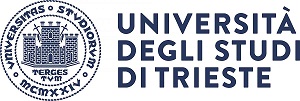The PhD course in Circular Economy UniTS (CE.TS) is a newly activated three-year doctorate, entirely organized in English. It aims to create experts who contribute to the advancement of scientific knowledge in various sectors and disciplinary areas through the correct use of methodologies and methods of economic and social research. The sectors and disciplinary areas are joint by a common denominator: the Circular Economy paradigm.
The doctorate is organized in three curricula: an economics curriculum (Economics & Circular Economy), a managerial curriculum (Circular Business Models) and a statistical-actuarial curriculum (Statistical and Quantitative Methods for Sustainability and Risk Assessment). The PhD is organized as follows: in the first part that is common to the three curricula students receive epistemological and methodological education with the aim to develop solid methodological and research design foundations.
Students then start following different paths according to the curriculum they belong to. Within each curriculum, students first receive education about the theoretical groundings of each disciplinary area with the aim to consolidate their knowledge about the theories, the models and the main paradigms that are proper of their disciplines. Once such "horizontal" training has been completed, each student will be able to complete his/her training in a "vertical" and modular way by adding additional courses around his/her specific research areas and research topics.
The CE.TS PhD program is endowed with a particularly innovative training structure and a strong openness to the territorial stakeholders (companies, public bodies and associations, research centers) from which it intends to be supported through doctoral scholarships (including industrial scholarships) and with whom it intends to establish long-lasting relationships of mutual satisfaction. While relying on this “local” network, the CE.TS PhD course is also an open and international doctorate: for the language used, for the board of lecturers and for the participants.
The PhD course in Circular Economy UniTS (CE.TS) aims to train experts who can contribute to the development of the scientific debate but also to contribute to public policies and corporate strategies related to the paradigm of the circular economy. Students who are more oriented towards an academic career will find in the CE.TS doctorate a suitable vehicle for accelerating their academic career at an international level. In order to be hired by universities of high standing at the global level. The students who are more oriented towards a business career (including students from an industrial PhD course) will find in the CE.TS PhD a place that will provide them with solid methodological and theoretical foundations needed to take strategic decisions or to define support policies which are scientifically grounded
Last updated on: 10/25/2022 - 13:29


